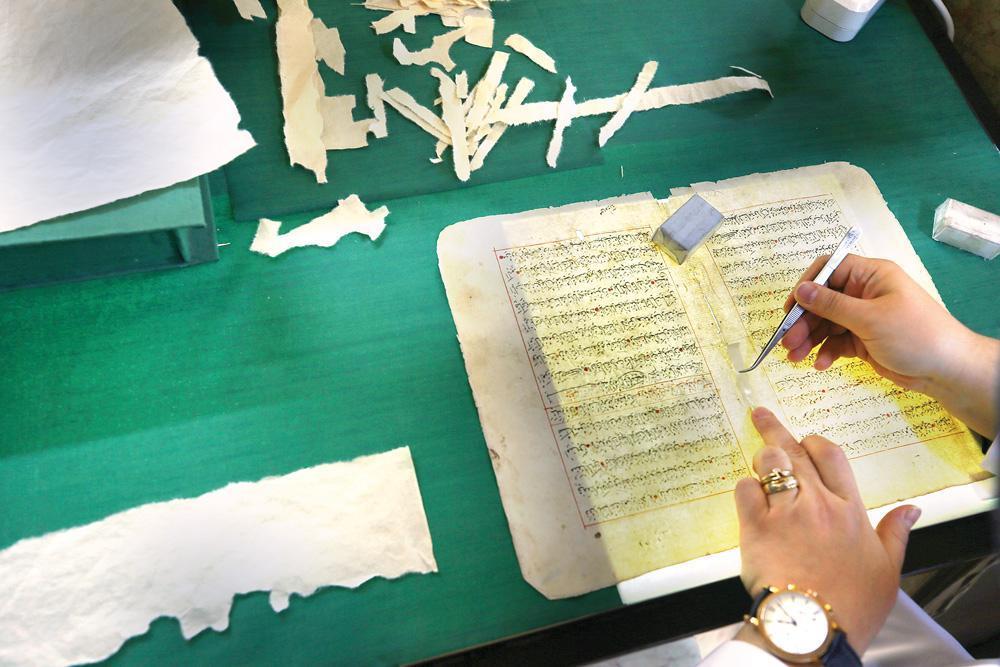
Nearly 30,000 rare manuscripts, most of which date back to the Seljuk era, are being kept in the Library of Manuscripts, one of Turkey’s most important libraries in the central Anatolian province of Konya.
Home to many priceless artifacts written by intellectuals, such as Rumi, İbn-i Arabi, İbn Sina and Sadrettin Konevi, the library is becoming richer every day thanks to donations, transfers and purchases.
The manuscripts, newspaper and printed books in the library are kept for the next generations with various works on them.
Due to physical, chemical and biological factors, the “sick and wounded” books are being repaired in the binding and restoration workshop. The books are considered based on importance and the level of their “sickness.” The ones with missing pages are removed from their binding and cleaned with brushes. The fungi in the books are also cleaned with chemical solutions.
The holes created by dust mites, the biggest enemy for books, are filled and their torn pages are repaired. Once the restoration is finished, the book is bound. Then the books are transferred to digital media.
Thanks to the restoration works, the life of the books has been prolonged and they have been put on shelves.
Some 30,000 books are being kept in an encoded special section with an iron door and four-layers of isolation.
This section, which is covered with chrome-nichelium sheet metal, is being monitored by security cameras from inside and outside against possible fire, robbery, loss and wearing down.
The rare manuscripts in this section of the library are being protected with a special system adjusting the heat and humidity balance.
This section in the main building is protected in a vault, like money units in the banks. The vault’s iron door is 10 times stronger than others and has three keys, which are kept by three different people. There is also a combination lock on the door.
Including the manuscripts, Bekir Şahin, the director of the Konya Library of Manuscripts, said the library is home to 120,000 books.
“It is home to the world’s most precious artifacts, which are in seven languages, including Arabic, Persian, Armenian, Syriac, Kurdish, Ottoman Turkish and Chagatai. Among them are the edict of Ottoman Sultan Abdulhamid II, a Bible printed in Rome in the 17th century and İbn Sina’s ‘El- Kanun Fi’t Tıbb’ [Law of Medicine]. Researchers who want to work on the rare artifacts in the library can reach them digitally,” said Şahin.